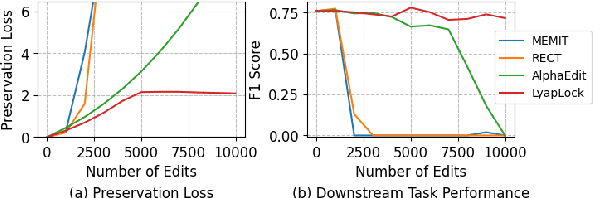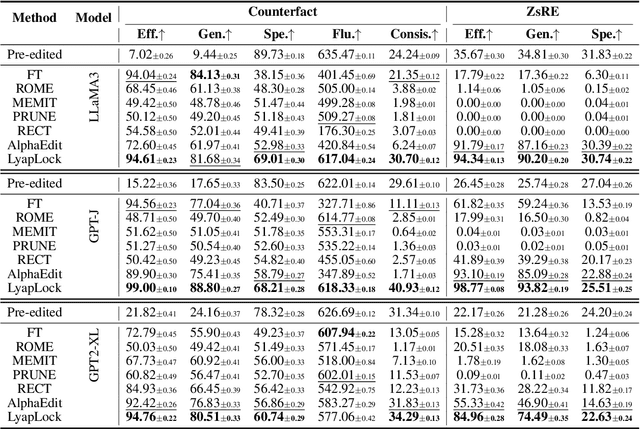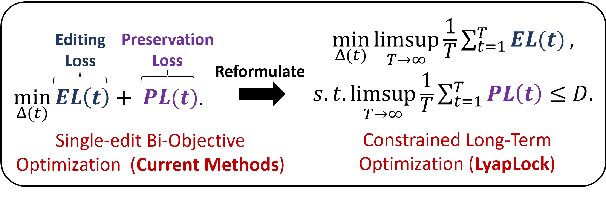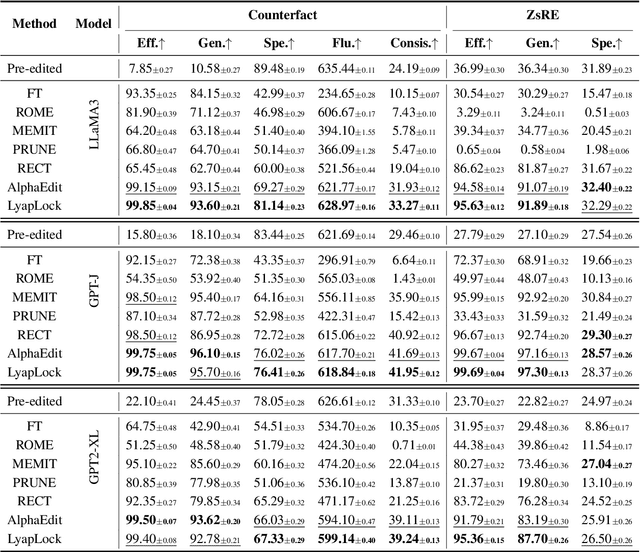Biyu Zhou
Exploiting Synergistic Cognitive Biases to Bypass Safety in LLMs
Jul 30, 2025Abstract:Large Language Models (LLMs) demonstrate impressive capabilities across a wide range of tasks, yet their safety mechanisms remain susceptible to adversarial attacks that exploit cognitive biases -- systematic deviations from rational judgment. Unlike prior jailbreaking approaches focused on prompt engineering or algorithmic manipulation, this work highlights the overlooked power of multi-bias interactions in undermining LLM safeguards. We propose CognitiveAttack, a novel red-teaming framework that systematically leverages both individual and combined cognitive biases. By integrating supervised fine-tuning and reinforcement learning, CognitiveAttack generates prompts that embed optimized bias combinations, effectively bypassing safety protocols while maintaining high attack success rates. Experimental results reveal significant vulnerabilities across 30 diverse LLMs, particularly in open-source models. CognitiveAttack achieves a substantially higher attack success rate compared to the SOTA black-box method PAP (60.1% vs. 31.6%), exposing critical limitations in current defense mechanisms. These findings highlight multi-bias interactions as a powerful yet underexplored attack vector. This work introduces a novel interdisciplinary perspective by bridging cognitive science and LLM safety, paving the way for more robust and human-aligned AI systems.
Paper Summary Attack: Jailbreaking LLMs through LLM Safety Papers
Jul 17, 2025



Abstract:The safety of large language models (LLMs) has garnered significant research attention. In this paper, we argue that previous empirical studies demonstrate LLMs exhibit a propensity to trust information from authoritative sources, such as academic papers, implying new possible vulnerabilities. To verify this possibility, a preliminary analysis is designed to illustrate our two findings. Based on this insight, a novel jailbreaking method, Paper Summary Attack (\llmname{PSA}), is proposed. It systematically synthesizes content from either attack-focused or defense-focused LLM safety paper to construct an adversarial prompt template, while strategically infilling harmful query as adversarial payloads within predefined subsections. Extensive experiments show significant vulnerabilities not only in base LLMs, but also in state-of-the-art reasoning model like Deepseek-R1. PSA achieves a 97\% attack success rate (ASR) on well-aligned models like Claude3.5-Sonnet and an even higher 98\% ASR on Deepseek-R1. More intriguingly, our work has further revealed diametrically opposed vulnerability bias across different base models, and even between different versions of the same model, when exposed to either attack-focused or defense-focused papers. This phenomenon potentially indicates future research clues for both adversarial methodologies and safety alignment.Code is available at https://github.com/233liang/Paper-Summary-Attack
LyapLock: Bounded Knowledge Preservation in Sequential Large Language Model Editing
May 21, 2025



Abstract:Large Language Models often contain factually incorrect or outdated knowledge, giving rise to model editing methods for precise knowledge updates. However, current mainstream locate-then-edit approaches exhibit a progressive performance decline during sequential editing, due to inadequate mechanisms for long-term knowledge preservation. To tackle this, we model the sequential editing as a constrained stochastic programming. Given the challenges posed by the cumulative preservation error constraint and the gradually revealed editing tasks, \textbf{LyapLock} is proposed. It integrates queuing theory and Lyapunov optimization to decompose the long-term constrained programming into tractable stepwise subproblems for efficient solving. This is the first model editing framework with rigorous theoretical guarantees, achieving asymptotic optimal editing performance while meeting the constraints of long-term knowledge preservation. Experimental results show that our framework scales sequential editing capacity to over 10,000 edits while stabilizing general capabilities and boosting average editing efficacy by 11.89\% over SOTA baselines. Furthermore, it can be leveraged to enhance the performance of baseline methods. Our code is released on https://github.com/caskcsg/LyapLock.
 Add to Chrome
Add to Chrome Add to Firefox
Add to Firefox Add to Edge
Add to Edge